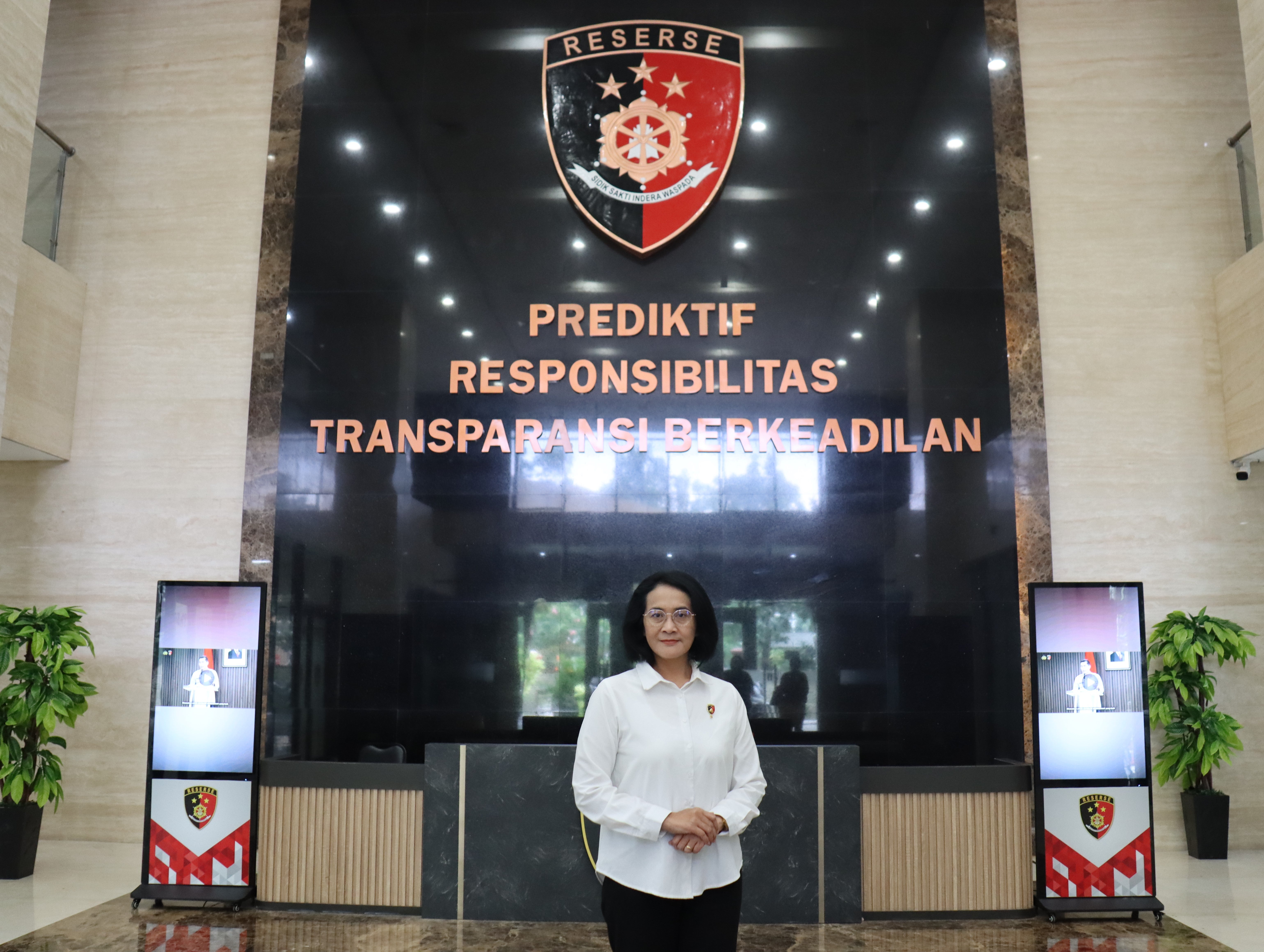Take Five: “We want to ensure every case of gender-based violence is handled with a victim-centred approach to prevent revictimization”
Date:
Interview by Radhiska Anggiana

Why was this academic position paper developed?
The academic paper was developed as a guide to creating regulations, strategies, techniques and methods so that the police response to women and girl victims of gender-based violence (GBV) can be more effective and coordinated by ensuring quality services – meaning that victims’ rights to justice, restitution and recovery are fulfilled. We want to improve aspects that become our concern: case-handling, victim protection and ensuring their rights. In addition to case-handling, we want to emphasize our efforts on preventing GBV.
The academic position paper has been under development since 2018. Why was it refined to include a gender perspective last year?
We want to ensure that every case of gender-based violence is handled with a victim-centred approach, to prevent revictimization. We are working to eliminate gender bias in law enforcement. This academic paper will translate into guidance that will ensure that victims are not blamed or retraumatized during the investigation process.
To ensure an inclusive process, we consulted women’s organizations and vulnerable groups, including women with disabilities and minority groups, during the development of the academic paper. These consultations were crucial to ensuring that their experiences and perspectives are reflected.
How does this paper contribute to creating a more inclusive and supportive environment for women police officers?
Women make up only 6 per cent of the police force, with even fewer in leadership roles. This needs to change. We are using this academic position paper to advocate for gender mainstreaming within the institution, aiming to increase the number of women in leadership positions.
How are we doing this? First, we are pushing for affirmative policies to boost the recruitment and promotion of women in the police force. Our goal is not just to increase numbers, but to place more women in key decision-making roles where they can lead. Second, we are advocating for more women-friendly workplace policies, such as breastfeeding rooms and daycare facilities. Third, we are prioritizing the protection of women officers from sexual violence and harassment.
How is UN Women supporting the development and implementation of this academic paper?
UN Women is supporting the development of this academic paper by providing global insights and best practices. Instead of starting from scratch, we are leveraging existing international guidelines, research and successful case studies. These references are invaluable in helping us shape and enhance the academic paper.
What are the next steps that the Directorate will take to follow up on the recommendations of the academic paper?
We are currently developing a responsive and integrated online complaint reporting system that connects with service and protection systems for handling GBV cases managed by relevant ministries and institutions.
Our next plan is to develop internal regulations to guide investigations and provide special protection for women and girls who are victims of gender-based violence, as well as vulnerable groups facing legal issues. We are also working on prevention strategies. This involves monitoring and evaluating how cases are handled by analysing data related to GBV. The insights gained will help us create more effective prevention strategies. Furthermore, we want to build a database that will later become our case-management system to monitor and analyse violence against women and girls’ cases and serve as insight to develop a prevention strategy and more efficient case-handling.